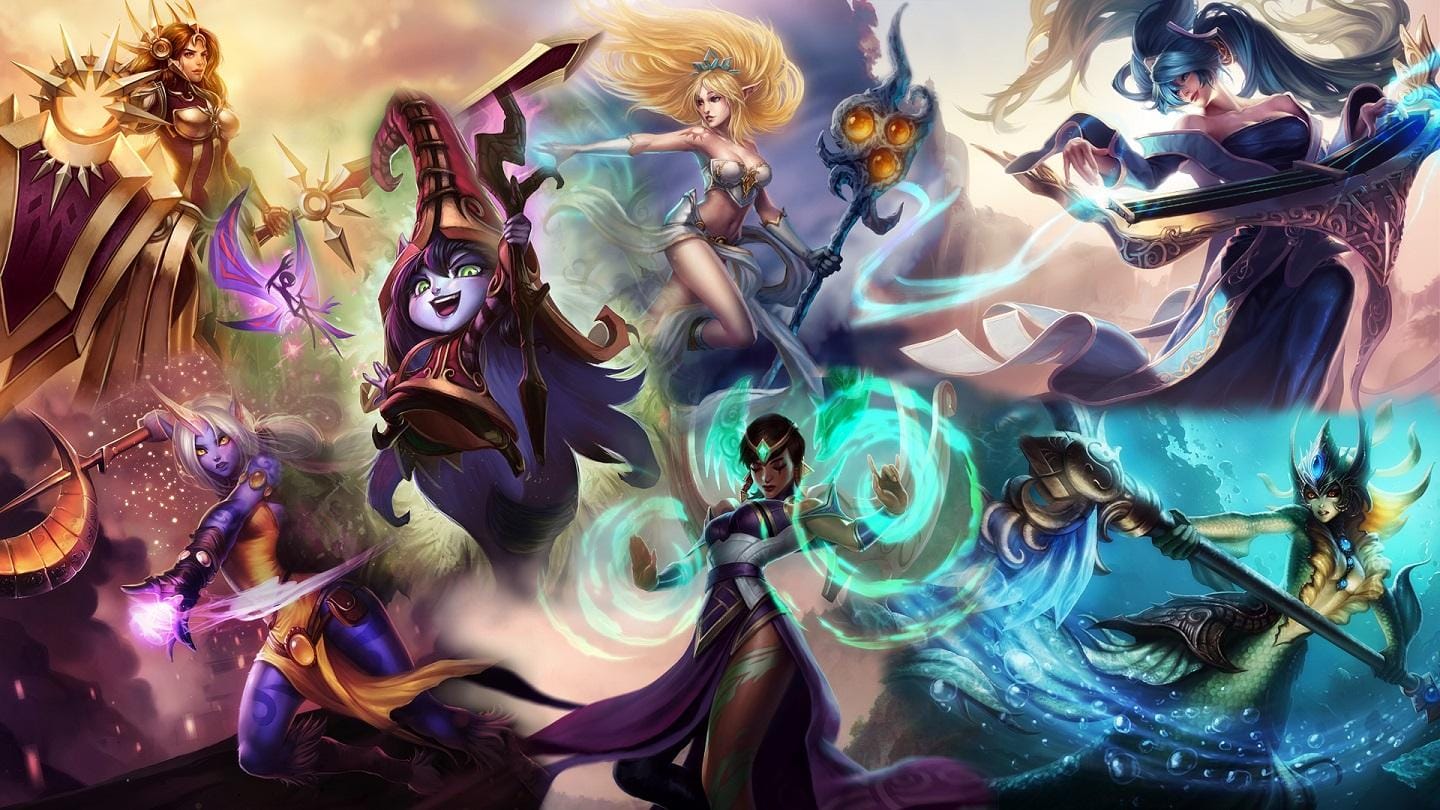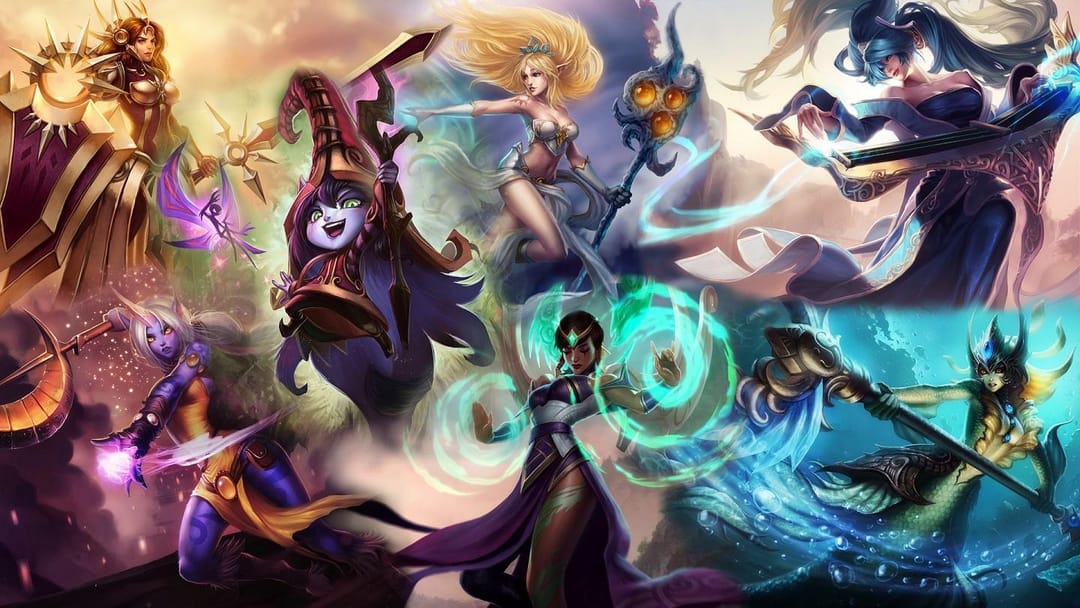


Support mains in League of Legends are the unsung heroes who can lead their team to victory through the power of zoning, vision control, roaming, and more! This guide dives deep into the art of playing support and shows how coaching can seriously up your LoL performance. Let's get started!
Understanding the fundamental aspects of the support role is essential for success in the bot lane. These core principles include zoning, vision control, and map awareness.
Zoning involves controlling the lane to provide your AD carry the freedom to farm while denying the enemy their resources. Effective zoning depends on understanding champion power spikes, abilities, and positioning.
Vision Control goes beyond simply placing wards on the map. It's about strategic placement, ensuring your team has crucial information on enemy movements and objective control.
Map Awareness is vital for predicting enemy actions, particularly those of the enemy jungler. Keeping an eye on the minimap and communicating potential threats to your team can often be the difference between victory and defeat.
Just like athletes in other fields rely on coaches, League of Legends players can benefit significantly from expert guidance. Support coaching emphasizes both macro and micro strategies. The macro level focuses on overarching game strategies, such as when and where to engage. On the micro level, players are guided on nuanced mechanics, such as optimal ability usage or dodging opponent skills.
Mastering the support role involves more than just the basics. Advanced techniques can significantly impact the game:
Roaming is moving from your lane to assist others, creating pressure and opportunities across the map.
Deep Warding offers insights into enemy territory, especially their jungle, providing your team with advanced knowledge of enemy plans.
Synergizing with your ADC ensures that both players in the bot lane are on the same page, optimizing trades, all-ins, and defensive plays.
Knowledge of bot lane matchups is crucial. Recognizing the strengths and weaknesses of both your and the enemy's champions can dictate the flow of the lane. Adapting to the meta also means adjusting strategies based on prevalent champion picks and playstyles.
Everyone makes mistakes, but you can always recognize and learn from them. Common errors include overextending without adequate vision or misusing summoner spells during engagements.
Reviewing gameplay is a potent tool for improvement. By analyzing your plays, decisions, and positioning post-game, you can identify areas of weakness and address them in future matches.
Receiving real-time feedback offers immediate insights and corrections. Live game coaching allows for on-the-spot advice, helping players adjust their strategies during the game.
Entering a League support coaching session can be an enlightening experience, especially for players dedicated to refining their skills.
Here's a deeper dive into what one can anticipate during such a session:
Pre-Session Analysis: Before the session starts, most coaches will ask you to provide recent gameplay videos or links to your game profile to assess your current skill level and identify areas of focus. This initial evaluation aids in customizing the coaching session to your specific needs.
Goal-Setting: At the session's onset, expect a discussion about your objectives. Are you looking to climb to a particular rank, or do you want to master a specific champion? Setting clear and achievable goals will give direction to the coaching process.
Real-Time Gameplay Analysis: During a live game review, the coach will observe your gameplay, making note of both strengths and areas needing improvement. They might comment on your positioning, decision-making, ward placements, and interactions with the ADC.
Interactive Q&A: Some of the most valuable insights arise from interactive dialogue. A portion of the session will likely be allocated for you to ask questions. Whether they concern game mechanics, strategy, or matchup queries, use this time to tap into the coach's expertise.
Feedback and Recap: The coach will provide detailed feedback after the gameplay or replay analysis. That might involve highlighting pivotal moments in the game, discussing alternative strategies or plays, and offering tips for more effective gameplay in the future.
Tools and Resources: Modern coaching often leverages various technological tools and coaching apps. Screen-sharing platforms, for instance, enable the coach to see what you're seeing in real-time. Some coaches might use drawing tools to explain positioning or map movements visually.
Homework and Assignments: To foster continuous improvement, coaches might assign specific tasks post-session. These could range from practicing particular champions in normal games, working on warding patterns, or watching and analyzing professional games to understand high-level support gameplay.
Follow-Up and Ongoing Encouragement: Many coaches stick around to help after the coaching session. They might send you some emails, share helpful video tips, or even check in now and then to see how you're doing.
When you wrap up a session, it's about knowing where you stand and, more importantly, having a clear path to reach your League of Legends goals. The pearls of wisdom you pick up from these sessions are your stepping stones to becoming that rockstar support everyone wants on their team.
Different coaches offer different styles and specializations. When seeking a coach, consider their experience, expertise in the support role, and feedback from previous students.
Mastering the support role in League of Legends is a rewarding journey. With dedication, practice, and the guidance of a knowledgeable coach, players can improve their gameplay, making impactful contributions to their team's success.

Charlene is an esports journalist and content writer covering competitive League of Legends, Valorant, and more.
View all articles